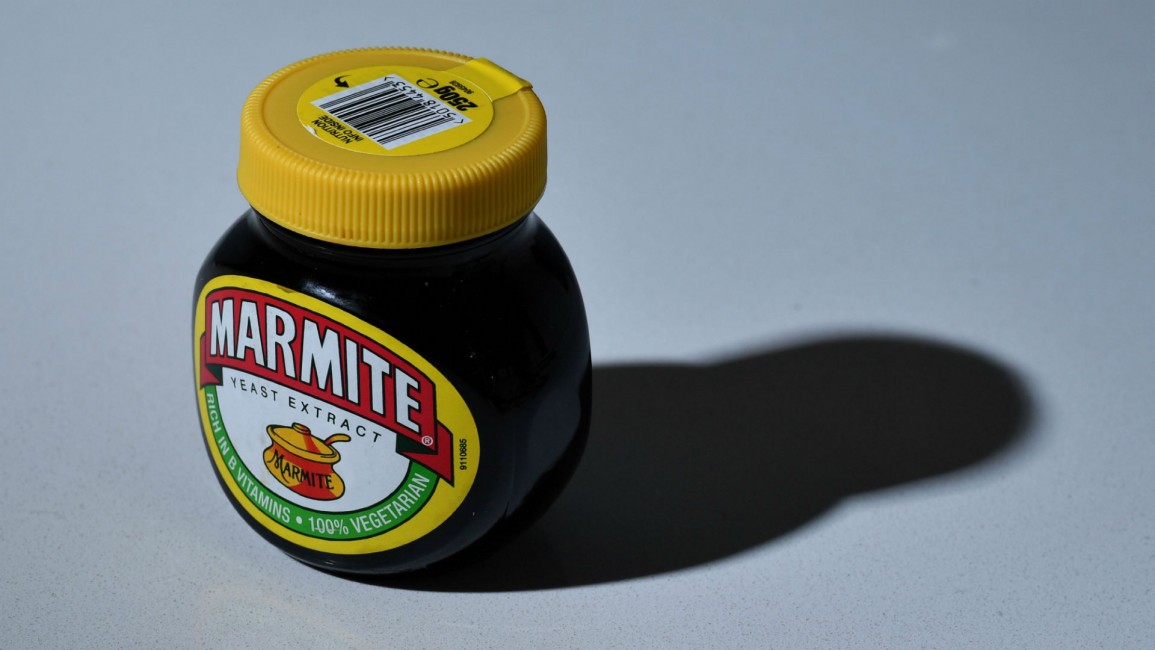
'Marmitegate' and peace in the Middle Yeast
The world has gone mad.
While this may once have been the rallying cry only of the world's Victor Meldrews, it is now clearly a truth to be held as self-evident.
The impunity with which mass murder is carried out in Syria, in Yemen, in Iraq.
The support for a dangerous clown to become president of the United States.
The tightening of the police state in Egypt.
The arrest of teenagers in Saudi Arabia for flirting.
The deaths of David Bowie and Prince.
Bob Dylan being awarded the Nobel Prize.
The march of the far-right, all across Europe.
The rejection of the Colombian peace deal.
The Brexit vote.
And now, the Great Marmite Crisis of 2016.
Marmitegate. Marmageddon.
Never let it be said that the Brits can blow things out of proportion. The Brits, after all, invaded China and got everyone hooked on opium just so we could get cheap tea.
In case you've missed the story spreading across British media faster than a savoury treat spreads across one's toasted crumpet, it is basically this: months after the Brexit vote, the UK government has still put forward no plan for dealing with the hugely complicated legal, constitutional, financial task of extricating the country from the European Union.
This causes great uncertainty in the markets. On Wednesday, the pound fell to a level last seen when Disraeli ordered the British fleet to the Dardanelles before the Crimean war. Sterling hasn't been this weak since the lightbulb was invented.
As a result, Unilever, the producer of Marmite (a yeast-extract spread on toast and one of Britain's favourite breakfast, lunch and dinner ingredients), announced that, as relative costs of production were rising, it would be raising the price of its products.
Unilever is one of a handful of companies (along with the likes of P&G and Nestle) that make the vast majority of everything the average Brit consumes on a daily basis.
Tesco, which holds a 28 percent market share of British grocery stores, subsequently declared that it would not pay the higher prices, and would refuse to re-stock Unilever goods.
Twitter Post
|
Panic on the streets of London.
It should probably be noted that, when the pound was strong, Unilever wasn't exactly dropping its prices to bargain basement levels. It did have a turnover of $58 billion in 2015. Times aren't exactly tough at Unilever House.
But as one Twitterer tweeted: If Tesco behaves like this with a giant company like Unilever, then just imagine how they're treating small farmers and producers.
Philip North, bishop of Burnley, also commented: "The real story here is not Tesco v Unilever, but rising food prices and impact on the poor. Let's hope the food banks are Brexit-ready."
Food bank use in the UK, incidentally, has swelled from 347,000 emergency three-day supply packs being issued in 2012 to more than one million in 2015.
Twitter Post
|
But wait, I hear you cry. What does Marmite have to do with the Middle East?
The link is tenuous, I'll admit. But it is this.
Marmite was once proposed as a solution to the violence plaguing the region.
That's right. And in a serious meeting of serious people. No less serious people than the serious people at Britain's Foreign and Commonwealth Office, in fact.
In 1999, the professor of lateral thinking, Dr Edward de Bono, was called in to lead a series of workshops with the UK's top diplomats. Dr de Bono promotes thinking about thinking – about deconstructing problems and coming at them from alternate angles. So far, so good.
But his proposal concerning Marmite and the Middle East jarred with the would-be peacemakers.
It is a lack of zinc in one's diet, he claimed, that makes men irritable and prone to violence. Put aside what you may think about decades of injustice, occupation, foreign powers carving up territory or plundering resources. Think about zinc.
Zinc is present in yeast, de Bono continued. And most people in the west get plenty of zinc from bread.
Twitter Post
|
But the bread of the Middle East is made without yeast. Unleavened bread. Flat bread. Pitta bread. Khubz arabee.
Sure, hummus has some zinc in it, but what's a really good source of zinc, according to the good doctor? That's right. My mate, your mate, Marmite.
So send a job-lot of the stuff to Tel Aviv and Ramallah and let peace reign in the Middle East.
Genius.
Except for one thing. I tried it out. In my years of visiting and living and working in the region, from Bethlehem to Doha, a jar of the sticky stuff was never far from my reach, and I took great delight in introducing people to the yeasty zinc-filled wonderspread. And as my extensive and not-particularly-scientific experiments have continued, one thing has become abundantly clear.
"Love it or hate it" is right. Never mind the historic role of the British in Palestine, or whether sandwich shops should stay open during Ramadan, it was Marmite that was a serious cause of division between people who would be friends under most other circumstances.
And it's not as if we need more of that.
James Brownsell is Managing Editor of The New Arab. Follow him on Twitter: @JamesBrownsell




